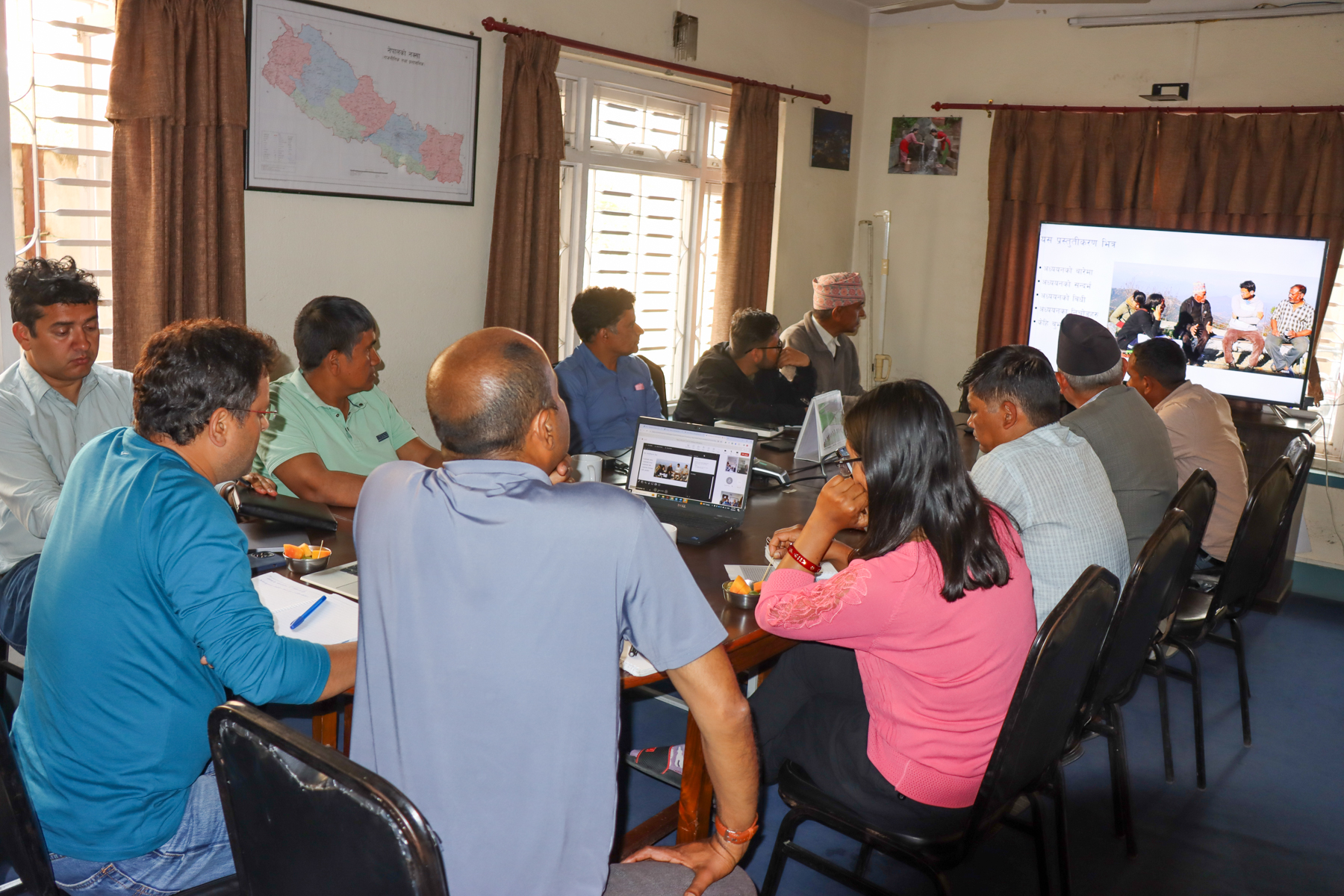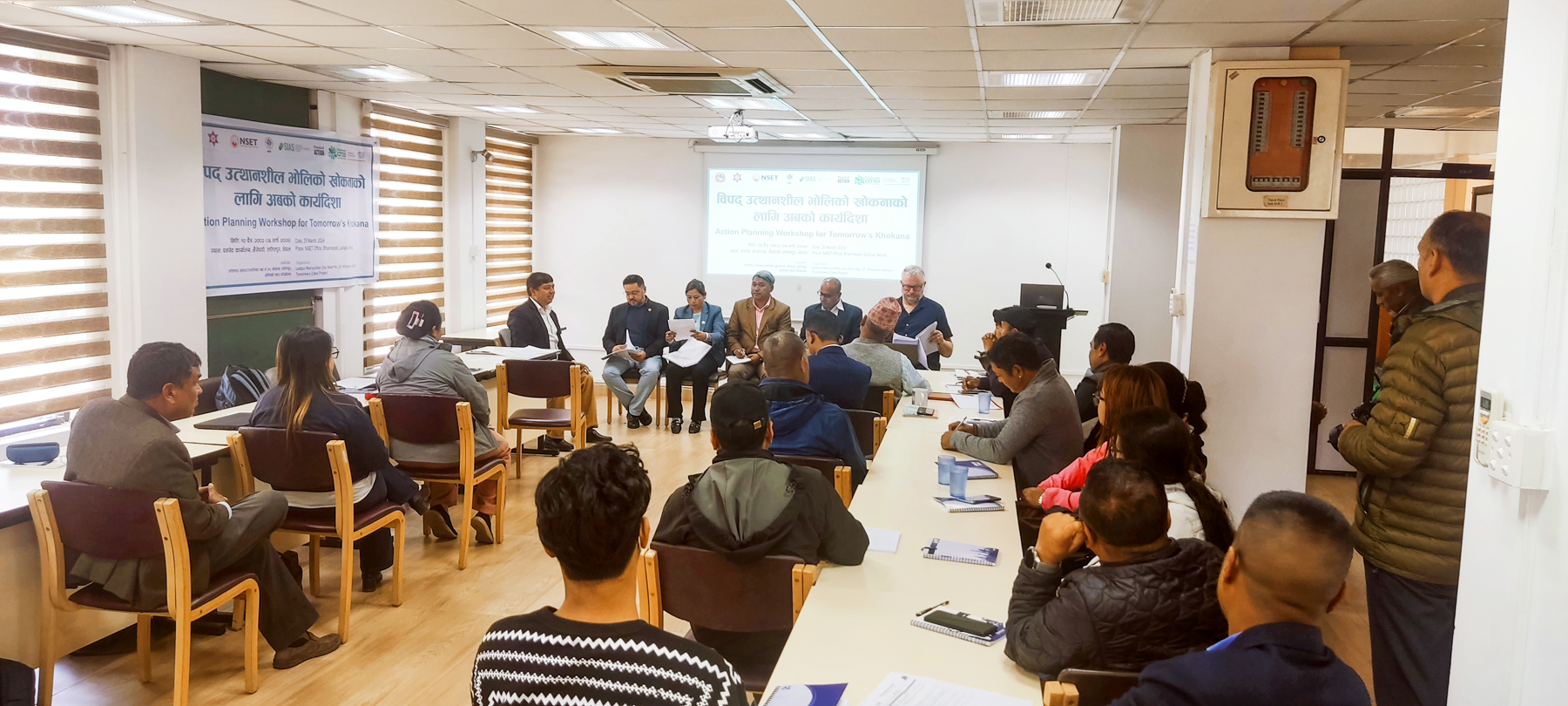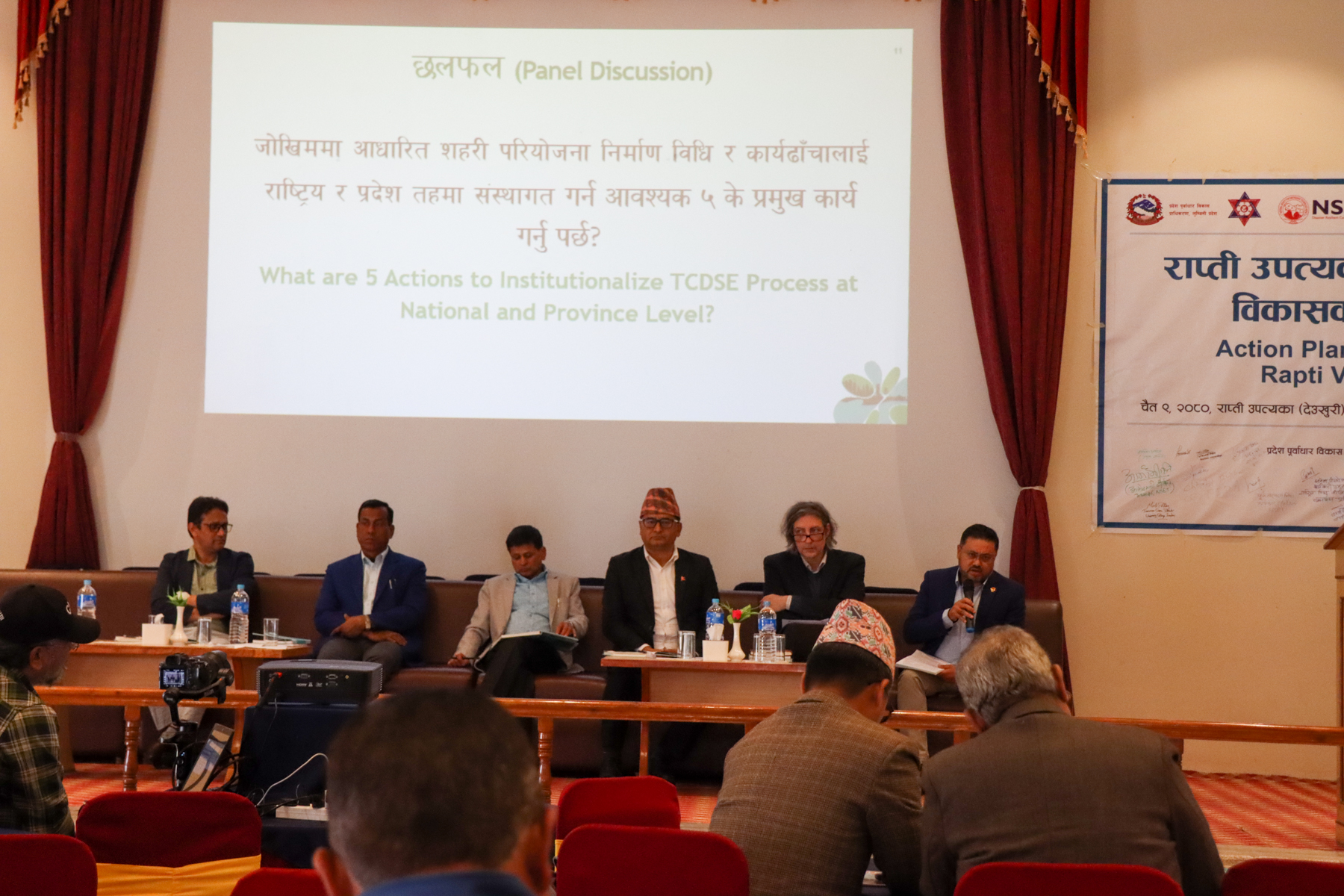8 & 9 February 2024
Southasia Institute of Advanced Studies (SIAS) in collaboration with Dolakha District Federation of Community Forest Users Nepal (FECOFUN, Dolakha) collaborated to organize a two-day workshop in Charikot, Dolakha, on 8th and 9th February 2024. This workshop served as a platform for fostering collaborative learning among various stakeholders involved in community forest management. The primary objectives of the workshop was to enhance understanding and implementation of sustainable forest management practices and facilitate plan execution.
The workshop commenced with insightful presentations by researchers Dr. Dil Khatri and Dr. Govinda Paudel from SIAS, who delved into their research findings on forest sustainability, including wintergreen cultivation techniques and effective forest governance strategies. Likewise, Mr. Bhola Khatiwada’s comprehensive overview of the Forest Act and its amendments over time provided participants with valuable insights into the legal framework governing community forest management in Nepal. These presentations set the stage for engaging discussions among workshop attendees, which included executive members from six Community Forest User Groups (CFUGs), researchers, and forest officials including Mr. Krishnaraj Neupane, the Divisional Forest Officer of Dolakha Charikot.
During the workshop, participants actively discussed the socio-economic aspects of generating income from forest resources. They reflected on identifying the forest resources suitable for income generation, planned activities to monetize these resources and determined the responsible individuals or groups for executing these income-generating activities. The discussion aimed to explore sustainable ways of leveraging forest resources for economic benefit while considering the social implications and responsibilities associated with such endeavors. Participants also actively exchanged ideas, shared experiences, and identified common challenges faced in community forest management in the changing socio-economic context. These discussions were instrumental in fostering a deeper understanding of the complexities involved in sustainable forest resource utilization, revenue generation, and conservation efforts. Importantly, participants collectively developed actionable plans aimed at addressing these challenges and enhancing the overall effectiveness of community forest management practices in the region.
On the second day of the workshop, participants focused on translating their discussions into tangible actions. They noted the practical steps to improve forest health, such as conducting forest weeding and cleaning activities in designated areas, planting a significant number of wintergreen and other species saplings annually, and allocating specific land parcels for conservation purposes. The group also emphasized the importance of continuous learning and capacity building, expressing a strong desire for training sessions on wintergreen cultivation techniques and sustainable forest resource utilization methods. The collaborative efforts witnessed during the workshop underscored a shared commitment among CFUGs, researchers, and forest officials towards promoting sustainable forest management practices and conservation initiatives in Dolakha. By harnessing collective expertise, experiences, and resources, participants laid the groundwork for fostering resilient and thriving community forests that benefit both local communities and the environment.




